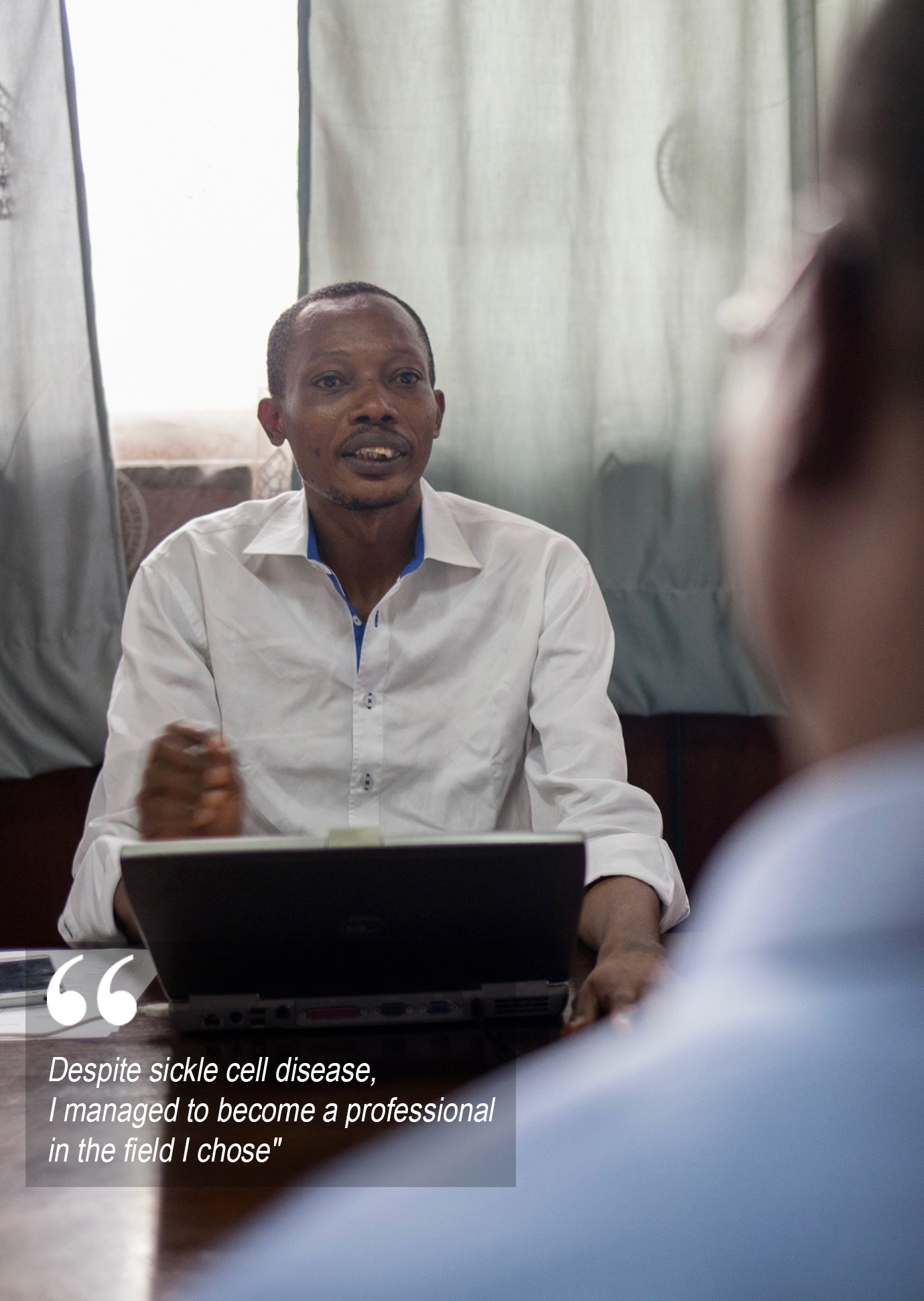THIERRY
Secretary General of the association Convergence-Drépanocytose Cameroon.
Partner of the Improvement of care for people suffering from sickle cell disease program.
The IECD was one of the first international solidarity associations to commit to people suffering from sickle cell disease in the Democratic Republic of the Congo. In 2014, the program was launched and supported more than 70 healthcare structures in 3 other countries: Madagascar, Cameroon and Congo-Brazzaville. In Cameroon, the association Convergence-Drépanocytose participated in the implementation of the program through awareness-raising actions.
Thierry lives in Yaoundé, where he is the Secretary General of the association Convergence-Drépanocytose. Thierry fights against ignorance and prejudice in order to guide sufferers towards adapted care and help them to accept their difference. He himself has sickle cell disease.
“My mother didn’t know what was wrong with me. She thought my crises were due to evil spirits.
In a house of a person with sickle cell disease, nobody can sleep. I used to scream and sometimes even beg to die to put an end to the pain. It lasted three or four days then the crisis passed. My mother was angry because her time and her small salary was eaten up by disease. My sisters stopped school one after the other in order to take care of me.
Then, I met this Moroccan doctor who suspected that I was suffering from sickle cell disease. I was 7 years old.
Because I was always fighting, I grew up quickly. I managed to become a professional in the field I chose. Life gave me the chance of meeting someone who has agreed to live by my side. Today, my role is to raise awareness among populations in order to break down taboos, ignorance and suspicion. Suffering is as much a result of solitude and rejection as physical pain.
I want to offer a message of hope: disabled people are able to transcend the situation in which they find themselves. We do not know what the future holds. It is a question of having a fighting spirit. When I was young, children with sickle cell disease often died before the age of 5 years. Today, we see teenagers and adults with sickle cell disease. This begs the question of how they are supported in their lives. “



